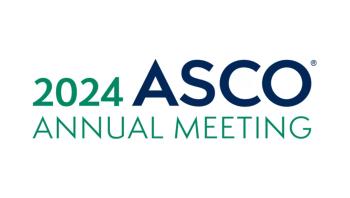
A pair of late-breaking trials, LAURA and ADRIATIC, promise practice-changing news in lung cancer.

A pair of late-breaking trials, LAURA and ADRIATIC, promise practice-changing news in lung cancer.

The BE-a-PAL study investigated potential of an algorithm-based default palliative care referral among patients who have stage III or IV lung or noncolorectal gastrointestinal cancer.

Attendees packed a session on multicancer early detection (MCED) on the first day of the 2024 American Society of Clinical Oncology annual meeting.

The annual session on newly approved drugs reviewed adverse effects, mechanisms of action, and real-world experiences.

Glofitamab is currently being investigated in a phase 1/2, multicenter, open-label, dose-escalation study as monotherapy and in combination with obinutuzumab, following 1-time fixed-dose pretreatment with obinutuzumab for B-cell non-Hodgkin lymphoma, of which mantle cell lymphoma (MCL) is a rare type.

The TROPiCS-02 trial studied sacituzumab govitecan vs physician’s choice of chemotherapy for HR+/HER2– breast cancer.
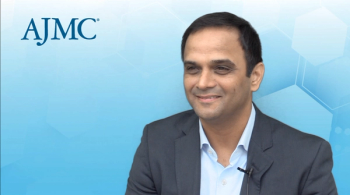
Surya Bhatt, MD, MSPH, of the University of Alabama at Birmingham, discussed the challenges of diagnosing chronic obstructive pulmonary disease (COPD) with type 2 inflammation, as well as the promising efficacy of dupilumab in treating this condition.

Presenters from CMS and the CDC explored the importance of standardizing health equity data collection at the 2024 CMS Health Equity Conference.

The annual conference taking place from June 1 to June 5, 2024, will feature sessions on the relationship between mental health and sleep, artificial intelligence in sleep, and different sleep conditions.
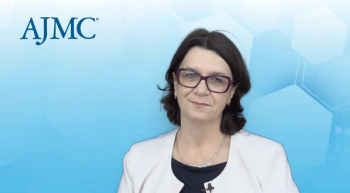
Leda Mannent, MD, global project head, Immunology and Inflammation, Sanofi, shares findings on the use of a novel treatment for patients with moderate to severe asthma.

Topics at the upcoming meeting of the American Society of Clinical Oncology include the impact of artificial intelligence and the best way to deliver palliative care.

In this interview ahead of the 2024 American Society of Clinical Oncology annual meeting (ASCO), Ravin Ratan, MD, MEd, The University of Texas MD Anderson Cancer Center, discusses study data he is excited to hear more about on the combination of trabectedin and low-dose irinotecan for relapsed/refractory Ewing sarcoma.
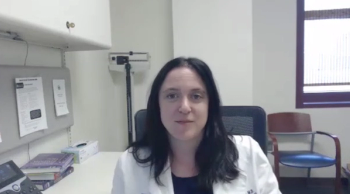
Melissa B. Jones, MD, staff neuropsychiatrist, Michael E. DeBakey VA Medical Center; assistant professor of psychiatry, Baylor College of Medicine, shares what she is looking forward to at this year's SLEEP 2024 conference.

Expert speakers at the American Thoracic Society (ATS) 2024 international conference share their favorite parts of the event and the key takeaways they will leave the conference with.

Among the many topics discussed at the American Thoracic Society 2024 International Conference (ATS 2024), the majority touched on barriers to health equity and access, regardless of the key focus of each talk or study. Experts examined this within the field, emphasizing the importance of enhancing data diversity, modernizing diagnostic tools, and revising regulatory standards to promote equitable health outcomes for diverse populations.

The Center on Health Equity & Access offered novel insights on transgender health and pulmonary medicine with late-breaking data and expert interviews from the American Thoracic Society annual meeting.
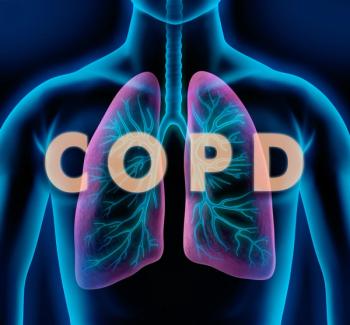
Two abstracts presented at the American Thoracic Society 2024 International Conference analyzed the phase 3 LIBERTY COPD BOREAS trial, finding that dupilumab improves pre- and post-bronchodilator lung function measures in patients with chronic obstructive pulmonary disease (COPD) and type 2 (T2) inflammation.

In a scientific session at the American Thoracic Society (ATS) 2024 International Conference titled "An Inconvenient Truth: Health Disparities and Health Care Inequality in Respiratory Medicine," a number of experts discussed the various areas within the field that are impacted by disparities.

Monica Kraft, MD, ATSF, contributed to research on preexisting asthma and the influence it may have on the severity of long-term COVID-19 symptoms, with some patients with asthma experiencing worse respiratory symptoms but better physical functioning compared with patients without asthma.

Study authors shared late-breaking data in a session on clinical trial results in pulmonary medicine at the American Thoracic Society 2024 International Conference.

Michael Arzt, MD, investigated the use of ASV therapy in patients with TE-CSA and cardiovascular disease, finding it effective in reducing sleepiness and improving quality of life. It may be more suitable for some patients to be treated with ASV than CPAP due to its ability to automatically adjust pressure and potentially improve comfort.

In a keynote presentation at ATS 2024, Hannah Wunsch, MD, MSc, of Weill Cornell Medicine, delved into how the history of breathing support dating back to the 1700s has set the stage for ventilation advances still being made today.

New data reveal that starting furoate/umeclidinium/vilanterol (FF/UMEC/VI) without delay not only significantly reduces exacerbations and health care costs but also enhances adherence and persistence for patients with chronic obstructive pulmonary disease (COPD) compared with other therapies.

Julie Linton, MD, FAAP, immediate past chair of the American Academy of Pediatrics (AAP) Council on Immigrant Child and Family Health, discussed disparities within health care services impacting immigrant populations in the United States.

Jan Hedner, MD, PhD, finds sulthiame improves sleep quality and reduces daytime sleepiness in patients with sleep-disordered breathing (SDB), offering a potential alternative to continuous positive airway pressure (CPAP) machines. This highlights the growing field of non-CPAP treatments, with personalized medicine being a key focus for future research.

During a session at the American Thoracic Society (ATS) 2024 International Conference, experts presented the most impactful data from the last year on acute respiratory distress syndrome (ARDS), childhood asthma, health equity, and lung cancer.
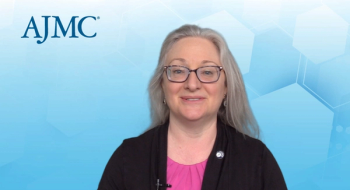
Kimberly Westrich, MA, chief strategy officer of the National Pharmaceutical Council, shares 3 key recommendations to improve the accuracy and quality of drug pricing data.
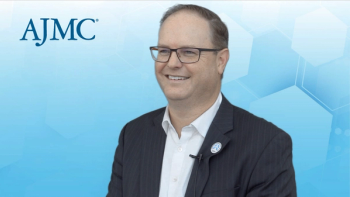
In research presented at the American Thoracic Society 2024 International Conference, Benjafield and colleagues explored the treatment of sleep-disordered breathing with adaptive sero-ventilation (ASV) in opioid users with central sleep apnea (CSA).

Promising results from a phase 2 trial of ENV-101, a novel hedgehog inhibitor, showed improvement in lung function and reduction of fibrosis in patients with idiopathic pulmonary fibrosis, said Paul Frohna, MD, PhD, PharmD.

Fatima Rodriguez, MD, MPH, from Stanford University, and Matthew DeCamp, MD, PhD, from the University of Colorado, joined Michael Howell, MD, MPH, of Google, on the stage at ATS 2024 to discuss artificial intelligence (AI) in health care.

259 Prospect Plains Rd, Bldg H
Cranbury, NJ 08512
© 2025 MJH Life Sciences®
All rights reserved.
